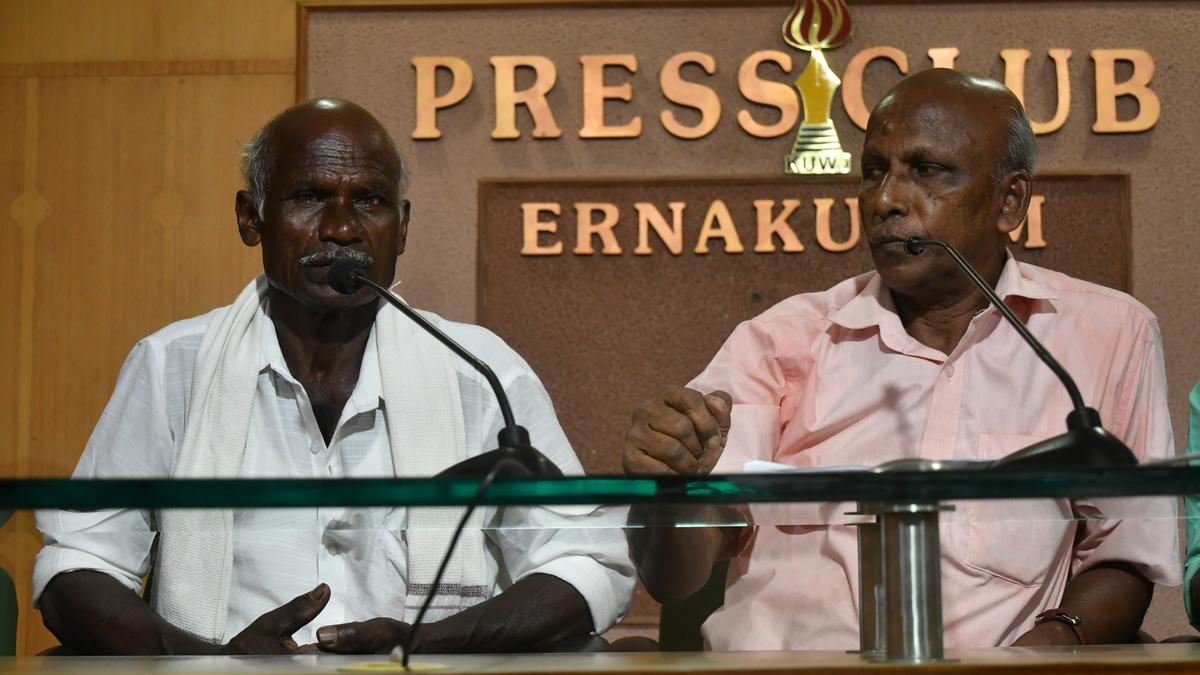
Dalits demand a special secular civil code
The Hindu
Dalits demand special secular code to protect their rights, oppose UCC proposed by Centre. Trans and LGBT communities should also have own special civil code. BJP's policy to create dichotomy in society by positing Muslim personal laws and Hindu Code.
A two-day meet of the Indigenous People’s Collective organised in the city as part of the World Tribal Day has decided to raise at the national level the demand for a special secular code for the Dalit communities.
M. Geethanandan, leader of the Adivasi Gothra Mahasabha, the organisers of the meeting, told a press conference here on Thursday that Dalits remain the only section in India eligible for such a secular principle-based code on account of their egalitarian ways and the promotion of inter-caste marriages. He was describing the important decisions taken at the meeting and enlisted in the rights declaration document brought out at the meeting,
Mr. Geethanandan said tribespeople had overwhelmingly rejected the Uniform Civil Code (UCC) proposed by the Centre and demanded the retention of their protection under the Sixth Schedule of the Indian Constitution under any future civil codes. The proposed special civil code for Dalits shall also incorporate the inter-caste validity and may even be made applicable for Dalits who left for other faiths.
Dalits may be described as secular since they largely follow their own customary practices, which were fundamentally disconnected from the idol worshipping of Hindus and the Hindu Code. Dalits didn’t follow a caste-driven inheritance of property rights while the rights accrued under government schemes were not based on the Hindu Code either.
“While other sections have opposed the UCC, they haven’t clarified a potential alternative like the Dalits’ demand for a secularism-based civil code. Trans and LGBT communities should also have their own special civil code since all the existing codes were silent about these communities,” said Mr. Geethanandan. He said that such a move holds significance in the evolving political situation in India and the BJP’s drive for UCC.
At present, all communities except Muslims and Christians come within the ambit of the Hindu Code. The BJP’s stated policy, as reflected in the Prime Minister’s Bhopal speech (in which he called for the UCC), was to create an impression that there was a dichotomy in the Indian society by positing the Muslim personal laws and the Hindu Code as its challenging force.
They could do that because of the conglomeration within the Hindu Code and had used the same logic in the formulation of the Citizen Amendment Act as well. The BJP policy for a future UCC would also be based on that and they were unlikely to budge from that position. They may even make the Hindu Code more stringent.

West Bengal government and Centre are not keen for resumption of MGNREGA, despite Calcuttal HC order
Calcutta High Court orders resumption of MGNREGA in West Bengal, but state and Centre show reluctance, impacting workers.





















 Run 3 Space | Play Space Running Game
Run 3 Space | Play Space Running Game Traffic Jam 3D | Online Racing Game
Traffic Jam 3D | Online Racing Game Duck Hunt | Play Old Classic Game
Duck Hunt | Play Old Classic Game










